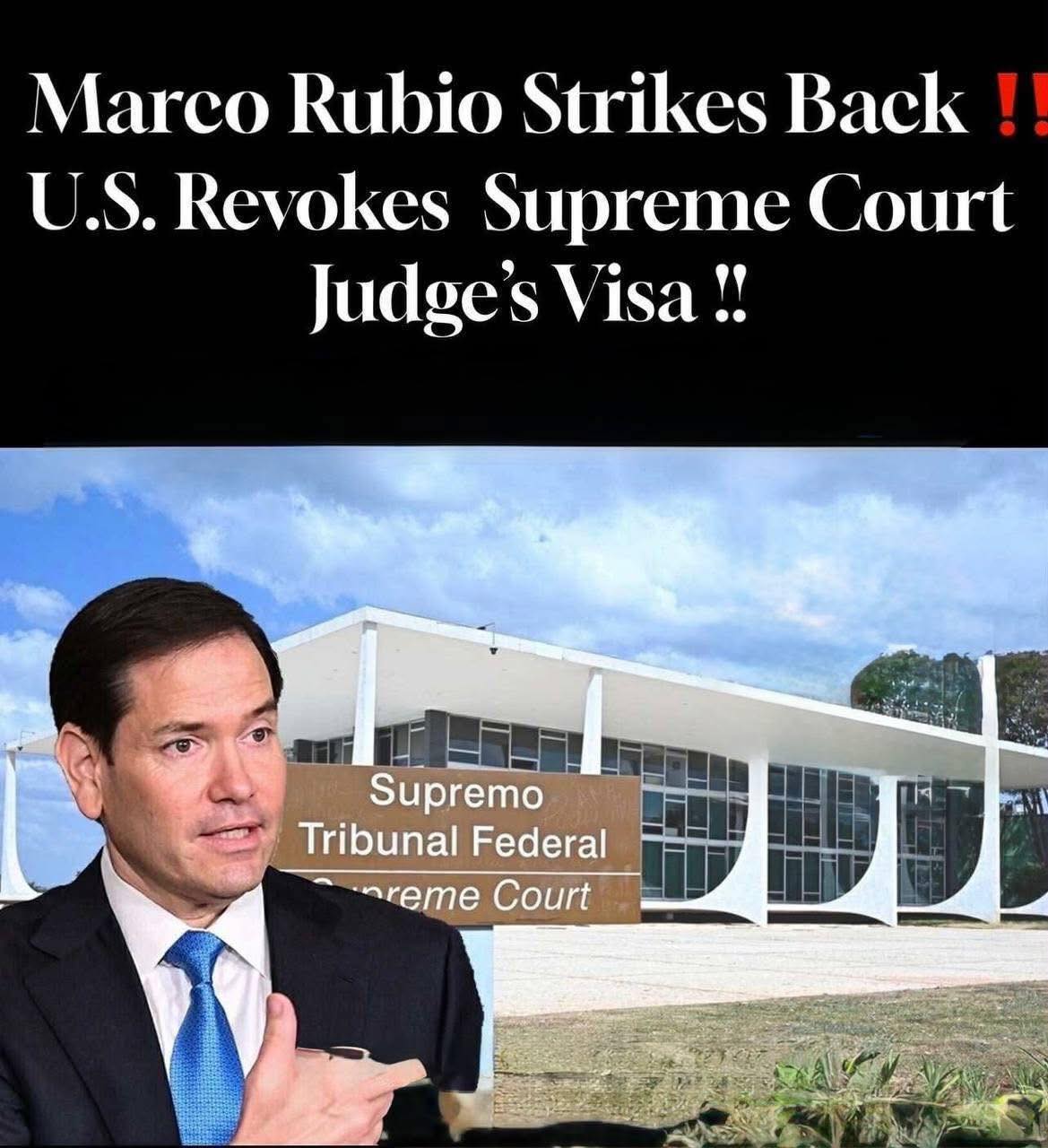The U.S. government, led by Secretary of State Marco Rubio, has revoked the travel visas of Brazilian Supreme Court Justice Alexandre de Moraes, several of his judicial colleagues, and their immediate family members, following growing tensions related to legal proceedings involving former Brazilian President Jair Bolsonaro.
The move was announced in a statement posted by Rubio, who also serves as the national security adviser to President Trump. He cited concerns about international overreach and restrictions on free expression stemming from Brazil’s handling of ongoing investigations.
“We are committed to standing up for civil liberties and freedom of speech around the world,” Rubio said. “Actions that extend beyond national borders and affect U.S. citizens or interests will not be ignored.”
Background of the Controversy
Brazil’s Supreme Court recently escalated legal measures against Bolsonaro, issuing a restraining order and conducting a police raid on his home. He was also fitted with an ankle monitor and barred from contacting foreign officials or using social media platforms.
Justice de Moraes, who issued the order, expressed concerns that Bolsonaro might attempt to leave the country or undermine ongoing legal proceedings.
The legal actions stem from allegations that Bolsonaro and several allies tried to challenge the results of Brazil’s 2022 presidential election. While he has denied wrongdoing, Bolsonaro maintains that the charges are politically motivated.
U.S. Responds with Visa Revocations
The State Department’s decision marks a rare step in diplomatic relations between the two countries. It reflects concerns over what U.S. officials described as the targeting of political figures and potential suppression of rights.
“We view freedom of expression and political neutrality in the judiciary as cornerstones of democratic systems,” the statement added.
Broader Implications
The development comes shortly after President Trump floated the idea of increasing tariffs on Brazilian imports in response to the situation, although no official action on trade has been confirmed yet.
In an interview with Reuters, Bolsonaro described the recent events as personally and politically painful.
“I feel deeply humiliated,” he said. “I am 70 years old. I led this country for four years and now face restrictions that are difficult to accept.”
Ongoing Legal Matters
Bolsonaro and several associates were indicted in early 2025 in connection with alleged efforts to retain power following his election defeat. Brazilian authorities have not announced a trial date, but the case continues to develop.
As the diplomatic tension rises, observers are watching how this will affect Brazil-U.S. relations, which have historically included cooperation on trade, regional security, and environmental issues.
